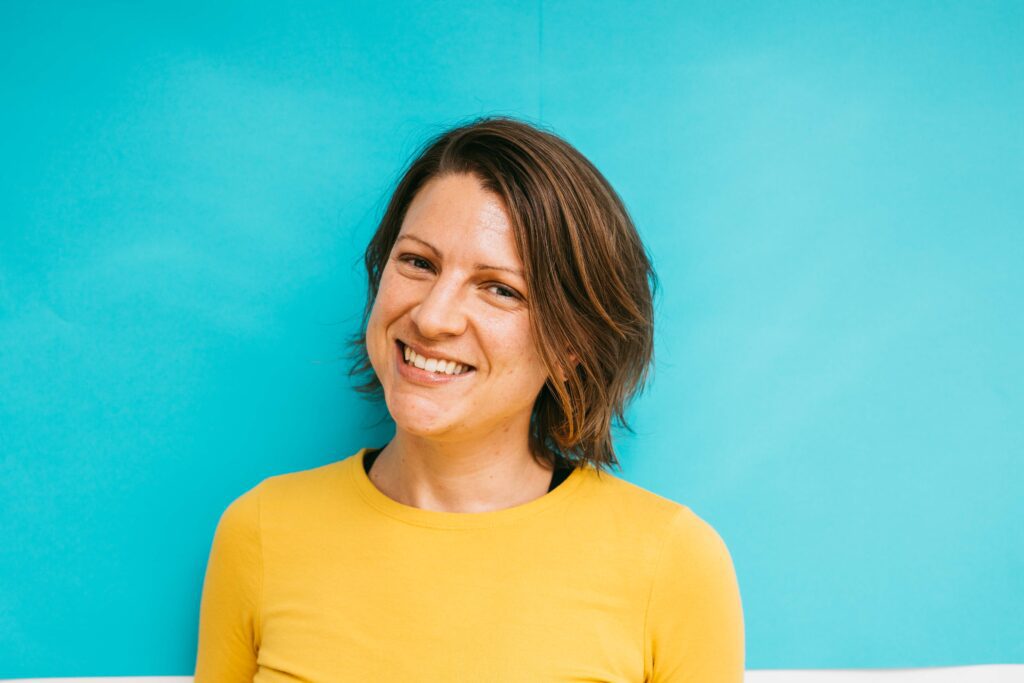Meet the Models: Emily Friedrichs
When Emily Friedrichs was 17, she lost her mother to breast cancer. At just 43, her mother left behind Emily and her two brothers, ages 14 and 10 at the time. Her battle defined most of the children’s lives, especially her youngest brother: “my mom was sick for three years before her death, so my youngest brother was only 6 and for him, most of his memories of her involve breast cancer.” It’s why, as Emily got older, she was diligent about self-exams and and breast MRI’s. The early screening would pay off because although she herself was unfortunately diagnosed, her early stage diagnosis meant a very treatable prognosis.
The diagnosis came just last March and she will soon finish radiation in September. Her hormone therapy will continue for five to ten years. In many ways, it can feel never ending: “I assumed after radiation I would be done, but there are so many follow up appointments.” She continues to work on acceptance saying, “I think I am still figuring things out a bit.” She notes that it is “just as important to take the time to deal with things emotionally and mentally as it is to focus on the actual medical treatment. Those two things take their own efforts too.” Finding balance has meant connecting with the community around her who understands the experience of cancer: “it’s really helpful to talk about things, even things like who is responding to what medication.” She also believes in indulging in the milestones. For her last treatment, she bought party supplies and celebrated, noting that in a situation filled with so much fear, it remains important to “recognize you don’t know what is going to happen, so don’t live by that fear.”

She continues to confront the realities of her treatment. Chiefly, the changes to her body. Though lucky enough to avoid chemo because of the early stage diagnosis, her body has experienced unanticipated changes from radiation: “to the outside world I may look the same, but my body feels achy and sore and not itself. I am still trying to get to know myself and my body again.” She maintains that knowing yourself and your body is paramount for success. On the morning of a planned breast reduction surgery (to have her breasts appear more uniform), Emily’s gut didn’t feel right. She ultimately pulled out and though she felt a level of guilt, she says, “don’t be afraid to change your mind or change course. Figure out what works for you.” She’s grateful to the team at Exeter Hospital who has supported her along the ever adapting treatment course. It’s why her biggest advice to women facing this diagnosis remains “it’s your body and your decision. Do what’s right for you.”
